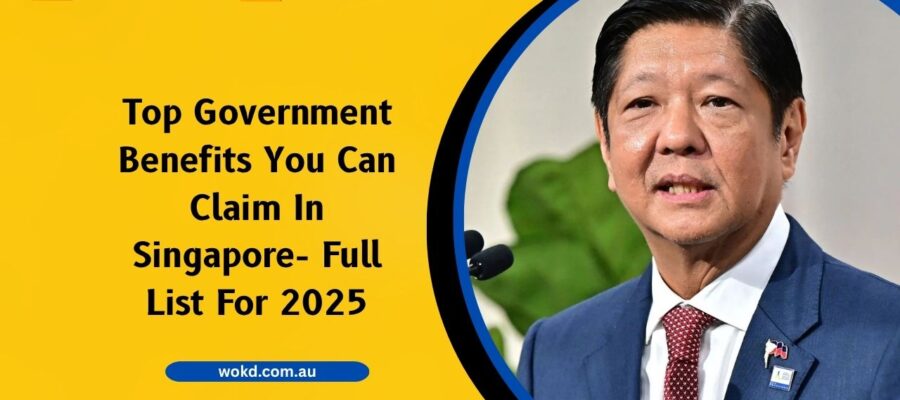Singapore continues to prioritize the well-being of its citizens by offering a range of government benefits aimed at providing financial stability and support.
These benefits are tailored to assist various groups, including low-income individuals, senior citizens, and persons with disabilities.
This article provides an in-depth look at the top government benefits available in Singapore as of 2025, detailing eligibility criteria, payout amounts, and other essential information.
1. Majulah Package
Introduced to bolster retirement adequacy for Singaporeans born in 1973 or earlier, the Majulah Package encompasses several components:
- Annual Earn and Save Bonus: Eligible individuals receive annual CPF top-ups ranging from $400 to $1,000, depending on income levels.
- One-time Retirement Savings Bonus: A one-off CPF Retirement Account top-up of $1,000 or $1,500, based on CPF balances and property ownership.
- One-time MediSave Bonus: A top-up of up to $2,000 to the MediSave Account, varying by age and property ownership.
This package benefits approximately 1.6 million Singaporeans.
2. Assurance Package (AP)
The Assurance Package aims to cushion the impact of the GST increase and includes:
- Cash Payments: Singaporeans aged 21 and above receive $700 to $2,250 over five years.
- MediSave Top-ups: Citizens aged 20 and below or 55 and above receive $150 annually from 2023 to 2025.
- Seniors’ Bonus: Lower-income seniors aged 55 and above receive $600 to $900 over three years.
- U-Save Rebates: HDB households receive $550 to $950 in utility rebates from 2023 to 2026.
3. Silver Support Scheme
This scheme provides quarterly cash supplements to seniors aged 65 and above who had low incomes during their working years. Eligibility criteria include:
- Total CPF contributions by age 55 not exceeding $140,000.
- Living in a 5-room or smaller HDB flat.
- Household income per person not exceeding $2,300.
Quarterly payouts range from $215 to $1,080, depending on flat type and household income.
4. Workfare Income Supplement (WIS)
The WIS encourages lower-income workers to stay employed by providing cash payments and CPF contributions. From 2025, eligibility includes:
- Singaporeans aged 30 and above.
- Earning a gross monthly income of $500 to $3,000.
Payments are made monthly and are automatically credited.
5. Pioneer Generation Disability Assistance Scheme (PioneerDAS)
This scheme offers $100 monthly to Pioneers with moderate to severe disabilities requiring assistance with at least three activities of daily living, such as eating, bathing, or dressing.
6. ComCare Assistance
ComCare provides financial assistance to low-income individuals and families facing temporary or long-term financial difficulties.
Support includes cash assistance, medical aid, and employment assistance. Eligibility is based on household income and individual circumstances.
Summary of Key Benefits
| Benefit | Eligibility | Payout |
|---|---|---|
| Majulah Package | Born in 1973 or earlier | Up to $2,000 MediSave; $1,500 CPF top-up |
| Assurance Package | Singaporeans aged 21 and above | $700–$2,250 cash; $450 MediSave top-up |
| Silver Support Scheme | Seniors aged 65+, low CPF savings | $215–$1,080 quarterly |
| Workfare Income Supplement | Workers aged 30+, earning $500–$3,000/month | Monthly cash and CPF contributions |
| PioneerDAS | Pioneers with disabilities | $100 monthly |
| ComCare Assistance | Low-income individuals and families | Varies based on assessment |
Singapore’s comprehensive suite of government benefits in 2025 underscores its commitment to supporting its citizens, especially the vulnerable and elderly.
By understanding and accessing these schemes, individuals can ensure greater financial stability and well-being.
FAQs
How do I check my eligibility for these schemes?
You can log in to the Government Disbursement Schemes portal using your Singpass to check your eligibility and view upcoming payouts.
Do I need to apply for these benefits?
Most benefits are automatically disbursed to eligible individuals. However, for schemes like ComCare, you may need to apply through your nearest Social Service Office.
How are the payouts made?
Payouts are typically credited directly to your bank account linked via PayNow-NRIC. If you haven’t set this up, alternative arrangements like GovCash or cheques may be used.
